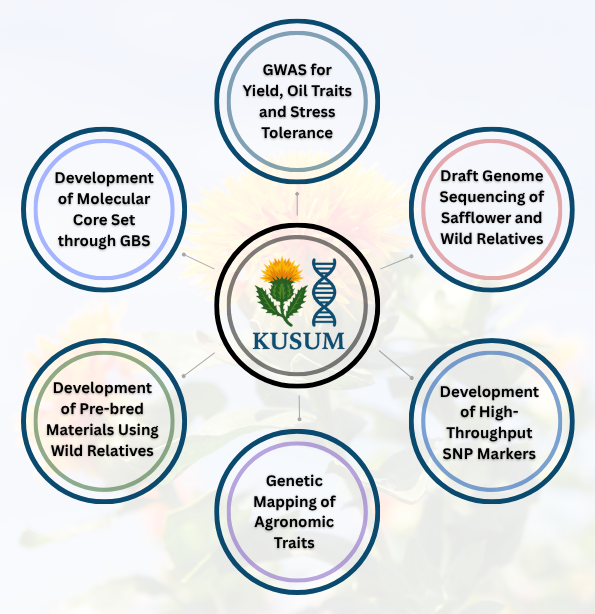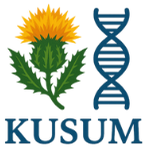DBT Grant No./ Project No.: BT/Ag/Network/Safflower/2019-20
Coordinating Institute: ICAR–Indian Institute of Oilseeds Research (ICAR–IIOR), Hyderabad.

ABOUT
Safflower (Carthamus tinctorius), an annual herbaceous plant, thrives in hot dry climates as a rain-fed crop surviving on residual moisture. It is the source of high quality edible oil, rich in polyunsaturated fatty acid (linoleic acid) or monounsaturated fatty acid (oleic acid), which is good for human health. It has been an under-utilized oilseed crop with high potential. This study formulated under the Mission Programme on “Minor Oilseeds of Indian Origin” would lead to the development of genetic and genomic resources, and identify QTLs/genes associated with important agronomic traits in safflower. Initially a highly diverse molecular core set of germplasm will be developed through GBS. Using the extensive phenotypic information, putative QTLs associated with agronomic traits will be discovered through GWAS. The draft genome sequence of safflower will be generated through NGS and SNPs would be discovered by resequencing genotypes. Also, a high resolution genetic linkage map of RIL populations will be developed by GBS, and will be used to map the putative QTLs for agronomic traits. Furthermore, emphasis will be given to generate diversity in safflower through pre-breeding efforts by assessing the closely related wild species of safflower, for their potential for tolerance to aphid, charcoal rot disease and moisture stress related traits. The genetic and genomic resources developed in this study would help in accelerating the breeding efforts to improve productivity in safflower and would eventually contribute for increasing edible oil production in the country.
GET STARTED













